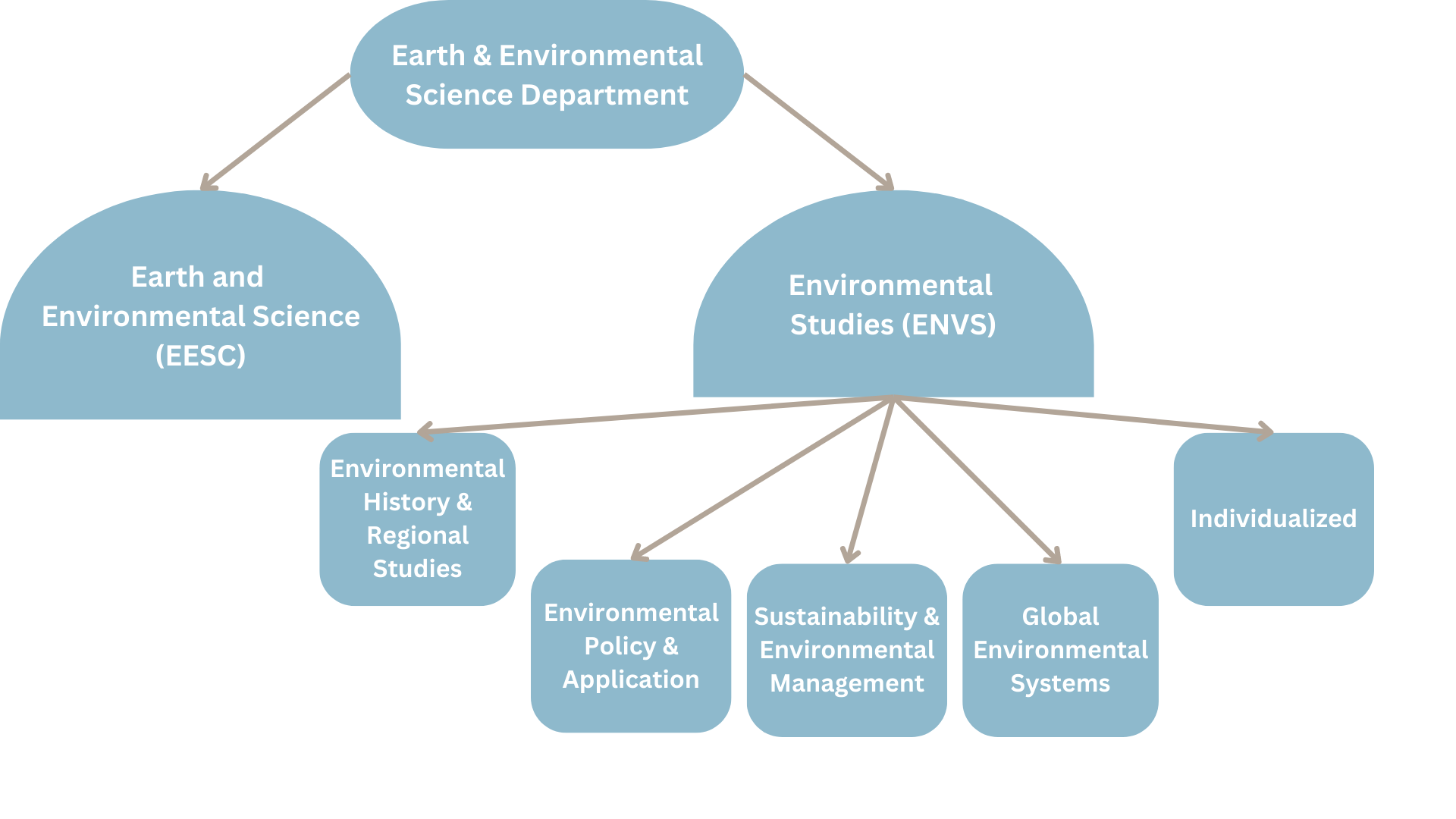
The Sustainability and Environmental Management concentration is designed to help students understand the nature of environmental constraints which face organizations and individuals in the modern world, and to understand how these constraints can be effectively considered as part of the decision-making process in for-profit and non-profit organizations.
(Minimum 15 credits for Major / 35 credits total)
Required Courses (8 CUs)
ENVS 100 / ENVS 1000: Introduction to Environmental Science (1 CU)
GEOL 204 / EESC 2300: Global Climate Change (1 CU), OR
GEOL 100 / EESC 1000: Earth System Science (1 CU), OR
GEOL 103 / EESC 1060: Natural Disturbances and Disasters (1 CU), OR
GEOL 130 / EESC 1030: Oceanography (1 CU)
ENVS 301 / ENVS 3100: Environmental Case Studies (1 CU), OR
ENVS 302 / ENVS 3103: PGS – Case Studies in Environmental Sustainability (1 CU), OR
ENVS 400 / ENVS 3991: Environmental Studies Seminar (1 CU)
ENVS 4997 a & ENVS 4997 b Senior Thesis (two courses, 1 CU each)
Data Analysis and Statistics (1 CU) from pre-approved ENVS course list.
Economics and Policy (1 CU) from pre-approved ENVS course list.
Geographical or Environmental Modeling (1 CU) from pre-approved ENVS course list.
Concentration courses (7 CUs)
EAS 401 / EAS 4010: Energy and its impacts: technology, ecology, economics and sustainability (1 CU), OR
EAS 402 / EAS 4020: Renewable energy and its impact (1 CU), OR
EAS 403 / EAS 4030: Energy Systems and Policy
Environmental Policy (1 CU) from pre-approved ENVS course list.
Environmental Economics (1 CU) from pre-approved ENVS course list.
Two out of the three following courses (2 CUs):
LGST 215/2150 / LGST 815/8150 (Wharton): Environmental Management Law and Policy
OIDD/BEPP 2610 (Wharton): Risk Analysis and Environmental Management
BEPP/OIDD 2630 (Wharton): Environmental & Energy Economics and Policy
Two upper division courses that are thematically related to the senior thesis and are chosen with the approval of a major advisor (2 CUs)
Related Practical Experience (0 CU)
Each student is encouraged to attend a summer field course or to seek a summer internship, summer employment, and/or academic-year practical experience/research related to his/her individual curriculum. Opportunities suited to a student's interests can usually be found. Students should discuss their options with their ENVS advisor.
